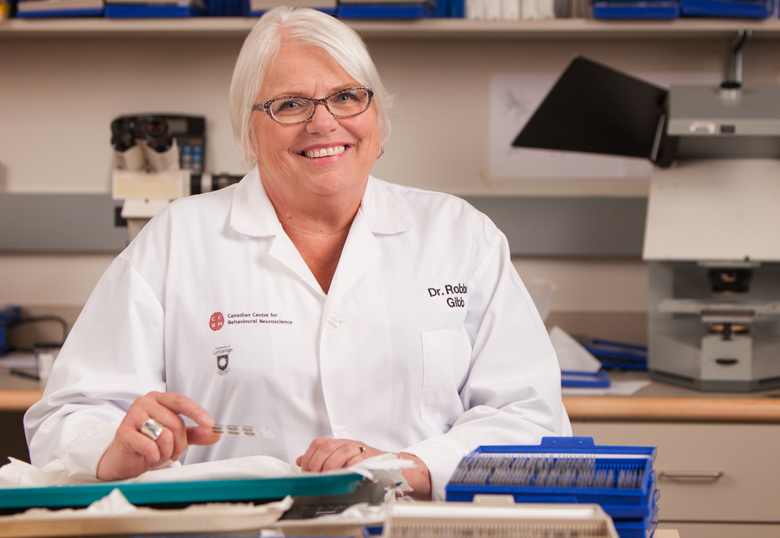We all know a baby’s health is inextricably linked to the lifestyle of the mother prenatally and while pregnant. But what’s less understood is the impact of the essential but often neglected half of this reproductive equation — the father, and his own preconception behaviours.

It’s a topic being investigated by Dr. Robbin Gibb, a researcher and professor in the Department of Neuroscience at the University of Lethbridge who is interested in how a male’s pre-reproduction lifestyle affects his kids’ epigenetics, or the expression of their genes. Specifically, she is studying the influence of paternal stress and the usage of alcohol and prescription drugs during this time period. Her findings so far confirm dads play a much bigger role than we ever imagined in a baby’s brain development and behaviour.
“We have this huge focus on mothers and their babies, and I think that’s appropriate, but why on earth don’t we ever consider what happens to the father preconception? It turns out the father’s lifestyle during this time has a huge influence on the outcomes and success of their children,” says Gibb, whose research is funded by a five-year, $120,000 grant from the Natural Sciences and Engineering Research Council of Canada.
Gibb has studied what happens to a father’s offspring when he is exposed to chronic stress right before they are conceived. Rat experiments she performed at her lab in U of L’s Canadian Centre for Behavioural Neuroscience showed the babies were more anxious, and also had a harder time performing certain tasks. Their brains also had significant differences in DNA methylation, a process that affects how our genes regulate development and disease. Her study, which was published last year in Neuroscience, theorized chronic stress modified the epigenetic expression of genes in maturing sperm, which in turn shaped gene expression and development in the embryo.
In another of Gibb’s studies, led by graduate student Allonna Harker, rats born to fathers who had consumed excessive alcohol for about a month preconception had lifelong issues with motor development and anxiety. Interestingly, when these same fathers were then deprived of alcohol for 45 days and mated again, their babies had worse anxiety and motor skills than those in the preceding litter.
“None of the sperm that were produced at the time when the dad was on alcohol would have been there, so we think we must have changed sperm precursors, so that they still carried instructions to the egg that affected gene expression in their offspring,” says Gibb on the initial findings of this ongoing study.
Finally, Gibb is also researching the impact on offspring of a father’s preconception consumption of the antidepressant Prozac. When male rats were given the drug for 45 days before mating, their offspring showed more anxious behaviour. Her preliminary results show this anxiety manifesting in the babies’ early stages of life; she will now explore if it persists throughout their lifespan.
A mother of two, Gibb had long been curious her and her husband’s impact on their children’s development, which is what sparked her interest in this research area. She hopes her findings compel medical professionals and policymakers to take a more inclusive approach to counselling services and public awareness campaigns geared at aspiring parents.
“Fathers need to be embraced as an important element in family. That means we need parental institutes and resources, not just maternal ones,” Gibb says. “We need to advise prospective fathers in the same way as we do the mothers about how their lifestyle can influence their babies.”
